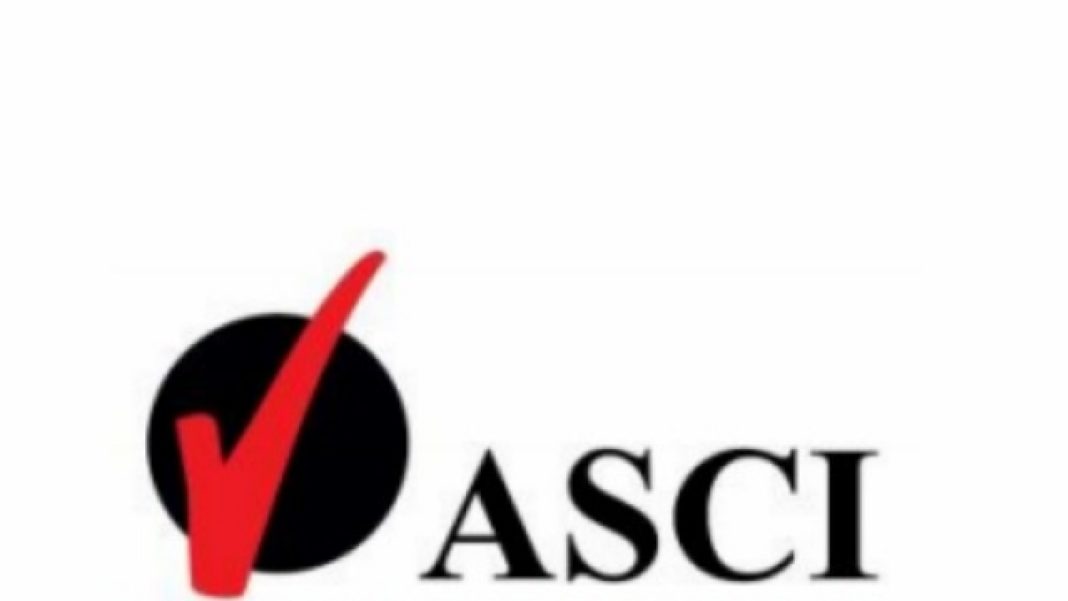The Advertising Standards Council of India (ASCI), during the month of October 2019, received direct complaints or took suo moto cognisance and carried out investigations against 344 advertisements, of which 80 advertisements were withdrawn by advertisers who were warned by ASCI.
The independent Consumer Complaints Council (CCC) of ASCI examined 264 advertisements, of which complaints against 137 advertisements were upheld. Of these 137 advertisements, 89 were from the education sector, 29 from healthcare, 4 personal care, 2 food & beverages, and 13 from the ‘Others’ category.
At the CCC evaluation, the most common reason for validation of complaints was that the advertisements were “misleading and exploited consumers’ lack of knowledge”. The second most-common reason was violations of ASCI Guidelines for Advertising of Educational Institutions and Programmes. The third category was where complaints were upheld for “superlative claims and unsubstantiated claims of having won awards”.
Among the advertisements that were examined, the CCC observed that a top cricketing celebrity had endorsed an “instant payment” claim being made by a well-known online platform for sale of used cars. In another instance, a global auto major, in their radio jingle implied that drivers needn’t care for traffic rules as it was a “badass car”.
In the personal care category, a well-known personal care company founded by a beauty expert, indicated SPF values that they could not, in the event, substantiate by providing in-vivo support data.
In another case, a popular sanitary napkin brand claimed to have “long-lasting cooling effect”, which was again unproven. Advertisements by some hospitals offering IVF treatments were censured for making misleading claims about their “success rates”. In another instance, an internet restaurant company’s claim of being the “world’s largest internet restaurant company” was regarded as misleading for want of verifiable data.
The CCC also came across a large number of advertisements in the education sector, with advertisers making “unsubstantiated and superlative” claims of being the “most trusted, No. 1, or award-winning”.
Rohit Gupta, Chairman, ASCI, said “Building on the momentum of the fine work done by the ASCI Secretariat in the past few years, for the year 2020 our resolve is to further strengthen the advertising ecosystem. This would be by means of new initiatives, enhanced processes, and new guidelines that we plan to roll out in the coming months. These initiatives would not only benefit consumers but would also result in enhanced participation of industry members in effectively practising self-regulation in advertising.”
RANDOM SAMPLING:
EDUCATION: 89 advertisements complained against.
· Suo Motu Surveillance by ASCI (89 advertisements)
HEALTHCARE: 29 advertisements complained against
· Direct Complaints (5 advertisements)
· Suo Motu Surveillance by ASCI (24 advertisements)
PERSONAL CARE: 4 advertisements complained against
· Suo Motu Surveillance by ASCI (4 advertisements)
FOOD AND BEVERAGES: 2 advertisements complained against
· Suo Motu Surveillance by ASCI (2 advertisements)
OTHERS: 13 advertisements complained against
· Direct Complaints (7 advertisements)
· Suo Motu Surveillance by ASCI (6 advertisements)

In the following cases (not the full list), CCC found that the claims made were “misleading and exploit consumers’ lack of knowledge and can lead to widespread disappointment in the minds of consumers”.
- CARS24 Services Pvt. Ltd. (cars24.com): The advertisement’s claim “Get Instant Payment”, featuring former India cricket captain M. S. Dhoni was considered misleading. Moreover, there was not enough evidence provided in lieu of celebrity’s “due diligence, hence violating ASCI’s Guidelines for Celebrities in Advertising as well”.
- Kia Motors India (Kia Seltos): The radio ad’s claims that “He doesn’t play by the rules. He plays with them” and that it was “Inspired by the badass in you”, imply that one needn’t necessarily care about traffic rules. It proffers “disregard for safety and encourages negligence”.
- Asian Paints Ltd. (Asian Paints Royale Health Shield): The CCC examined the television commercial’s claim of “Antibacterial paint with Silver Ion Technology as recommended by the Indian Medical Association” and found that though the claim about its being an “antibacterial paint” and having secured endorsement by IMA granting use of the IMA recommendation of the technology with a mandatory disclaimer (Silver Ion Technology as recommended* by the Indian Medical Association) were substantiated, in the TVC presentation of the product, the expression “Indian Medical Association” was more prominent while the critical disclaimer “Silver Ion Technology recommended* by the ….” was downplayed in terms of font size, font format, and weightage.
- Onsite Electro Services Private Limited. (OnsiteGo 15 Months Total Protection Plan for Mobiles): The claims on an ecommerce portal of “Total Protection For Mobiles” and “Total Protection Plan for Mobiles” were misleading as the said plan was applicable to screen damage alone, something that was not stated upfront. The ad also violated ASCI Guidelines for Disclaimers.
- Policybazaar Insurance Web Aggregator Private Limited: The website advertisement’s claim of “100% guaranteed returns” was misleading. CCC observed that though the ad assured 100% guaranteed returns on certain products, the details of such products were not put out alongside. The CCC did not concur with the advertiser’s contention that if a product was approved by the Insurance Regulatory and Development Authority (IRDAI) then its features which may include “100% guaranteed returns” may also be approved by IRDAI.
The Advertising Standards Council of India, established in 1985, is committed to promoting self-regulation in advertising in order to ensure the protection of consumer interest. ASCI’s objective is to ensure that commercial advertisements conform to its Code for Self-Regulation, which requires “advertisements to be legal, decent, honest, and truthful and not hazardous or harmful while observing fairness in competition”. ASCI looks into complaints across all media, such as Print, TV, Radio, Hoardings, SMS, Emailers, Internet/Websites, Product Packaging, Brochures, Promotional Material, and Point of Sale material.










